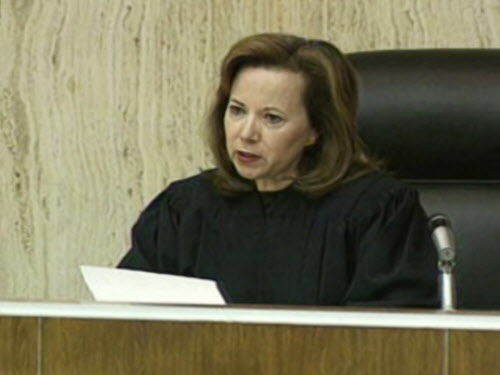PHOENIX — An organizer of a campaign to rein in title loans told a federal judge that Arizonans won’t get to decide the issue in November unless she blocks enforcement of a law on how initiative signatures are disqualified.
In a sworn affidavit, Tomás Robles of Living United for Change in Arizona said the law in question has left backers of the proposal to cap interest rates on title loans unable to get the financial commitments needed to hire petition circulators.
“That is both because the law exponentially increases the already substantial costs of pursuing an initiative and effectively narrows the reach of the message by limiting the pool of circulators we can use to successfully gather signatures,” Robles told U.S. District Court Judge Susan Bolton.
A member of the steering committee of Arizonans for Fair Lending, the group behind the initiative campaign, he said efforts to put the issue to voters in November will cease unless Bolton enjoins the law by no later than the end of the month.
The affidavit is designed to convince Bolton that the initiative committee will suffer “irreparable harm” if she allows the law to remain in effect. That is one of the issues a judge must consider in determining whether to issue an injunction before there has been a trial on the merits of the claim.
Robles and attorneys for Arizonans for Fair Lending have an uphill fight.
In a ruling just last month, Bolton acknowledged that the law could make gathering signatures more difficult and that initiative organizers might have to take “several extra steps” to keep the law from knocking the measure off the ballot. But she said that was not enough for her to bar the state from enforcing the statute.
“Although it might be frustrating for AFL to take those extra steps, frustration does not demand such an extraordinary remedy as a preliminary injunction,” the judge wrote.
Hanging in the balance is a proposal to subject title loans — loans issued with a vehicle title as collateral — to state laws limiting allowable interest at no more than 36% a year. Current title loans can carry an annual percentage rate up to 204% .
Backers need 237,645 valid signatures on petitions by July 2 to put the issue on the November ballot.
The hurdle the lawsuit seeks to remove is the “strikeout law,” a 2014 statute that says paid circulators and those who do not live in Arizona must first register with the secretary of state or their collected signatures do not count. It also allows opponents trying to keep a measure off the ballot to subpoena those circulators to come to court.
If any circulator who has to register does not show up to court, all the signatures gathered by that person can be struck — even if there is proof that the signatures are valid. And that could leave the petition drive short of its goal.
That tactic was successfully used in 2018 to keep a measure off the ballot that would have banned “dark money” contributions to political campaigns.
Robles, in his affidavit, told Bolton he fears the title loan initiative could meet the same fate.
“We simply cannot predict that any number of our most prolific signature gatherers may ultimately be unable to make an in-person appearance in court at some unknown date in the future,” he wrote.
“If the Strikeout Law is not enjoined soon, it will silence our initiative campaign,” he said.
“That affects not only those of us involved, but also Arizona voters and the general public, who will not have an opportunity to engage in a statewide conversation over this important issue affecting some of Arizona’s most vulnerable families.”





